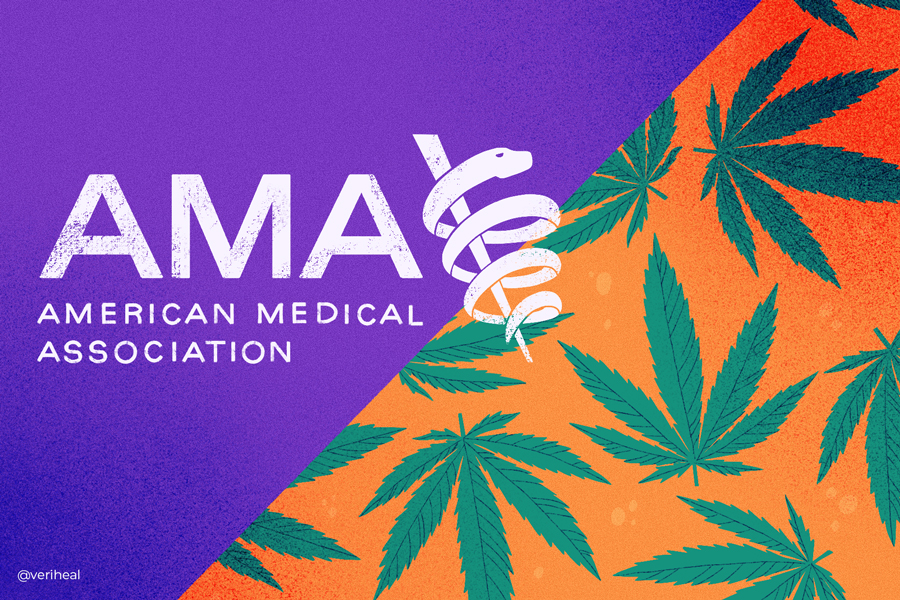Several studies have been investigating the possibility of psychosis resulting from cannabis use. However, a 2023 study debunks many myths about the potential dangers of legalizing cannabis. This groundbreaking research, published in the Journal of the American Medical Association Psychiatry (JAMA), challenges previous claims that marijuana legalization increases psychosis and other mental health issues. In addition, several other studies suggest that legalizing access to marijuana is actually associated with decreased:
Gone are the days when cautionary tales run rampant. In this article, we use science to provide clarity and direction on the truth behind marijuana legalization in an evidence-based landscape. Let’s take a closer look.
The Relationship Between Marijuana Use and Psychosis
Using the Optum Clinformatics DataMart Database, which functions as an anonymous Medicare Advantage and commercial claims database, scientists were able to gather data with unprecedented precision. All beneficiaries aged 16 years and older were included during the study period. Following more than 63 million participants from Jan. 1, 2003, to Dec. 31, 2017, researchers relied heavily on data related to member enrollment information, diagnostic codes, and pharmacy claims integrated with a secure patient identifier.
How Several Sources of Data Were Used in the Research
In 2019, an estimated 48.2 million people aged 12 and older were using cannabis, which has undoubtedly grown further due to the wave of legalization efforts sweeping through the nation. Thirty-eight states have legalized cannabis for medical use, while 19 states permit adult recreational use. With legalization spreading, the average price of cannabis has dropped substantially, but perhaps even more impressive is the significant increase in THC found in products on shelves—from only 4% in 1996 to a staggering 17% by 2017. Researchers gathered the results of this study from a variety of sources, including:
State Cannabis Policy Level
The Alcohol Policy Information System cannabis law database holds data for recreational cannabis laws, whereas public research provided data for medical cannabis laws until 2017. An interesting categorical variable created by the researchers reflects the specifics of the permitted type of cannabis use and whether retail outlets were open and operational. In some cases, legalization policies only allowed home-grown cannabis or had not yet implemented commercial sales.
Psychosis-Related Claims
By examining codes from the International Classification of Diseases, Ninth and Tenth Revisions, commonly called the ICD-9 and ICD-10, scientists identified cases whose diagnosis revolved around psychosis. They further classified these diagnoses into four distinct groups:
- Mood disorders featuring psychotic traits
- Non-affective psychoses
- Substance-related psychoses
- Anything else that might be regarded as a “psychosis episode”
State-Level Characteristics
With a variety of laws and demographics, state-level characteristics offered insight into communities across the United States. For example, raw data on population percentages for non-Hispanic Asian, Black, and white residents was compiled using U.S. Census figures (2002-2009) as well as American Community Survey totals (2010–2017). Poverty levels were also taken into account.
Statistical Analyses
Scientists gathered data on diagnoses of psychosis as well as prescribed antipsychotics to model healthcare claim rates in each region, demonstrating that advanced statistical analysis is critical for understanding and interpreting mental health trends.
Why You Should Get Your Medical Marijuana Card
Veriheal has satisfied millions of patients nationwide by giving them access to these benefits
- Larger purchase limits
- Peace of mind
- Enhanced legal protection
- Access to higher potency strains
- Save up to 25% on cannabis purchases
- Skip the line at the dispensary
Here’s What the Analysis Found
After analyzing the insurance claim records, researchers found no marked difference in psychosis-related insurance claims between states with legalized recreational marijuana and states where it is still banned. The results of this study do not support the argument that decriminalization will lead to an increase in psychosis. Instead, it seems to indicate that allowing marijuana use has no significant impact on mental health outcomes.
The study’s findings clearly contradict the misconceptions and fears propagated by those opposing marijuana legalization. Contrary to popular belief, it appears that the legalization of marijuana does not lead to an increased prevalence of psychosis-related cases within communities where it is present. In fact, this research further emphasizes that simply because two factors are correlated does not mean one causes the other.
Prior studies on this association have not been able to distinguish whether the psychosis or marijuana use occurred first or if people with mental illness are more prone to using marijuana for relief. Although it remains important to monitor changes in mental health in states where marijuana has become legal, this research provides evidence that society need not be concerned about a potential explosion in mental health issues.
Studies Also Show Increased Marijuana Legalization Lowers Incidence of Alcohol and Opioid Use Disorders
There is no doubt that both alcohol and opioids are widely misused and can cause devastating health problems. Unfortunately, opiates and alcohol frequently cause hospital admissions due to overdose, withdrawal syndrome, seizures, and reckless behaviors stemming from substance abuse.
Marijuana is deemed far less dangerous than alcohol and opiates, and in states where marijuana is legal, both opiate use and alcohol use decrease. With its ability to transition people away from using more harmful substances, it may have the capacity to drastically improve outcomes for those living with substance use and mental health disorders.
Criminal Behavior Tends to Decrease With Cannabis Legalization
Individuals against marijuana legalization often invoke the moral panic of increased crime rates as one of their primary arguments. However, this notion has been disproven by numerous studies conducted by the National Institute of Justice, which suggest no correlation between marijuana legalization and increases in violent or non-violent criminal behavior. This includes data on traffic violations and drug-trafficking charges, making it harder to sustain that disastrous argument. Thankfully, minds are changing, and facts are prevailing when discussing marijuana’s effect on crime rates thus far.
Putting It All Together
This new study from the American Medical Association provides additional proof that cannabis legalization is not associated with increased psychosis. The evidence further suggests that marijuana legalization has the potential to drastically reduce the harmful outcomes of substance abuse and criminal behavior.
With cannabis becoming increasingly accepted nationwide for legal use, this latest research sheds new light on how effective policy changes can help lead to a healthier society. There’s still a lot that needs clarifying about using marijuana responsibly and some unanswered questions about its effects on mental health and substance use disorders. However, we now have more data than ever to guide us toward making good decisions.
Note: The content on this page is for informational purposes only and is not intended to be professional medical advice. Do not attempt to self-diagnose or prescribe treatment based on the information provided. Always consult a physician before making any decision on the treatment of a medical condition.
Author, Share & Comments









